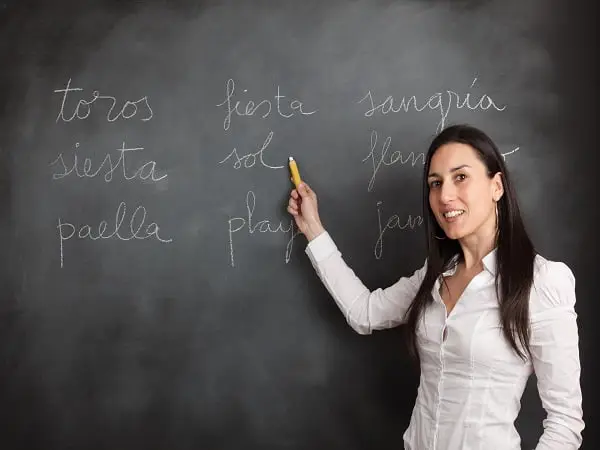As much as they try, we see that our students find it difficult to pronounce some sounds more than others. And when pronouncing different words in Spanish, there are also some difficulties, though fully surmountable. We will tell you the most difficult sounds when learning Spanish for foreigners.
Any language has different words, letters or endings of words that can become a nightmare for foreign students. Based on repeating and understanding, you can overcome these difficulties and learn to pronounce words normally. When you learn Spanish in Spanish-speaking countries you can practice the difficult sounds and you will gradually overcome them.
- The letter R:
The letter R is a familiar pronunciation for many students. In Spanish, we pronounce this word very strong and with a hard sound. It can be very difficult for foreigners since there are languages that not even pronounce the letter R, despite having it in their alphabet. The best way to rehearse the letter R is in front of the mirror.
- The sound G/J:
Let´s practice: genio (genius), garaje (garage), jaula (cage), gemido (groan)… the sound of the g and j can confuse many foreign students. And, it can also confuse many Spaniards when writing. Why do these words either have a g or j? Don´t try to look for a logical explanation. The best way is to learn these words by heart.
- The letter H:
In Spanish, the letter H is not pronounced, but it is essential to write the words with the H otherwise you will make a lot of spelling mistakes. For foreigners, the letter H is one of the most difficult to learn, since you need to learn to NOT pronounce it. In many languages, the letter H is accompanied by another sound, in Spanish this is not the case. So, remember not to pronounce this letter.
- The sound C/S:
One of most frequent mistakes in speaking Spanish by foreigners is to replace the words with c (ce and ci) with s. For example, presiosa for preciosa, atardeser for atardecer, dulse for dulce, etc. In southern Spain and Latin America this replacement while talking is common, but writing it is a mistake.
- The double erre:
The double erre is a typical problem for many students when learning Spanish in Spain. They stay in simple vibration, when it comes to a word where the r is pronounced twice, just like you type it. It is common to find errors when you pronounce “corije” instead of “corrije”, “bariga” instead of “barriga” or “marones” instead of “marrones” and many more similar cases.
![]()
You will come across some more difficult sounds when learning Spanish, but for now when you solve these you can go a step further in improving your Spanish pronunciation. You see it’s not so difficult to learn and apply these corrections when learning Spanish.






